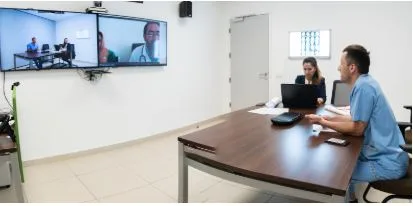Exploring Madagascar: The Challenges of Independent Travel
Madagascar, the world’s fourth-largest island, is a dream destination for many adventurers and nature enthusiasts. With its unique flora and fauna, stunning landscapes, and rich cultural heritage, it’s no wonder that Madagascar adventure tours are becoming increasingly popular. However, for those who prefer to travel independently without the assistance of a local agency, navigating this exotic island can present numerous challenges.
One of the primary difficulties faced by independent travelers in Madagascar is the lack of reliable transportation infrastructure. While major cities like Antananarivo, the capital, have some public transportation options, venturing into rural areas or between distant locations can be a logistical nightmare. Roads are often in poor condition, with many becoming impassable during the rainy season. This makes it challenging to stick to a planned itinerary or reach some of the island’s most alluring destinations without specialized vehicles or local knowledge.
Language barriers pose another significant obstacle for independent travelers. While French is widely spoken in urban areas and among educated Malagasy, English is less common, especially in rural regions. The official language, Malagasy, has various dialects across the island, further complicating communication. This language divide can make it difficult to arrange accommodations, negotiate prices, or simply ask for directions without the assistance of a local guide or agency.
Navigation is another challenge that independent travelers face in Madagascar. Accurate maps can be hard to come by, and GPS services may be unreliable in remote areas. Many of the island’s most spectacular natural attractions, such as national parks and wildlife reserves, are located off the beaten path and can be challenging to locate without local expertise. This is where organized tours have a distinct advantage, as they can provide experienced guides who know the terrain intimately.
Safety concerns can also be a significant issue for independent travelers. While Madagascar is generally a peaceful country, petty crime and theft can occur, particularly in urban areas and tourist hotspots. Without the security and local knowledge provided by a reputable agency, travelers may find themselves in uncomfortable or potentially dangerous situations. Additionally, health risks such as malaria are present in many parts of the country, and accessing proper medical care can be challenging without local contacts or support.
Cultural misunderstandings can also arise when traveling independently in Madagascar. The island has a rich tapestry of traditions and customs that vary by region and ethnic group. Without proper guidance, travelers may inadvertently offend local sensibilities or miss out on meaningful cultural experiences. For example, visiting the charming town of Ambositra, known for its intricate wood carvings and traditional Zafimaniry architecture, could be a much richer experience with insights from a knowledgeable local guide.
For Italian travelers, the challenges of independent travel in Madagascar can be even more pronounced. While Madagascar viaggi (for Italian speakers) options are available through specialized agencies, those choosing to go it alone may struggle with language barriers and cultural differences. Italian is not widely spoken in Madagascar, and finding Italian-speaking guides or translators can be difficult outside of major tourist areas.
Another aspect that makes independent travel challenging in Madagascar is the complexity of arranging permits and entry fees for national parks and protected areas. Many of these locations require advance booking and specific documentation, which can be difficult to organize without local assistance. Agencies specializing in adventure tours can streamline this process, ensuring that travelers have all the necessary permissions and can focus on enjoying their experience rather than dealing with bureaucratic hurdles.
The unpredictable nature of Madagascar’s weather and its impact on travel plans is another factor that can catch independent travelers off guard. The island experiences distinct wet and dry seasons, with cyclones possible during the rainy months. Without local knowledge or the flexibility provided by a tour agency, travelers may find their plans disrupted by unexpected weather conditions, leading to missed connections or inaccessible destinations.
Accommodation can also present challenges for independent travelers in Madagascar. While major cities and popular tourist destinations offer a range of hotels and guesthouses, options become limited in more remote areas. Booking in advance can be difficult without local contacts, and the quality of accommodations may not always meet international standards. This is particularly true in areas like Ambositra, where traditional homestays might offer an authentic experience but may lack amenities that some travelers are accustomed to.
Food and water safety is another concern for independent travelers in Madagascar. While the local cuisine is diverse and flavorful, sourcing safe drinking water and ensuring proper food handling can be challenging, especially in rural areas. Without the guidance of a local agency or tour operator, travelers may be at higher risk of foodborne illnesses that could derail their trip.
Despite these challenges, many intrepid travelers still choose to explore Madagascar independently, drawn by the allure of a truly unique and off-the-beaten-path experience. However, it’s crucial for these adventurers to be well-prepared, flexible, and willing to embrace the unexpected. Thorough research, basic language skills, and a willingness to adapt to local conditions are essential for those embarking on a self-guided journey through this extraordinary island.
In conclusion, while independent travel in Madagascar offers the potential for unparalleled adventure and discovery, it comes with significant challenges that shouldn’t be underestimated. From transportation difficulties and language barriers to safety concerns and cultural complexities, navigating the island without local support can be daunting. For many visitors, especially those with limited time or specific interests, opting for Madagascar adventure tours or seeking assistance from reputable local agencies may provide a more rewarding and stress-free experience. This is particularly true for international visitors, such as Italian travelers exploring Madagascar viaggi options, who may benefit greatly from specialized support.
Ultimately, whether choosing to travel independently or with guided assistance, Madagascar remains a captivating destination that offers unforgettable experiences for those willing to embrace its unique challenges and unparalleled beauty. With proper planning, respect for local customs, and an open mind, travelers can create lasting memories in this extraordinary corner of the world, from the bustling markets of Antananarivo to the artisanal wonders of Ambositra and beyond. The key is to find the right balance between adventure and preparation, ensuring a safe, enriching, and truly memorable Malagasy experience.




